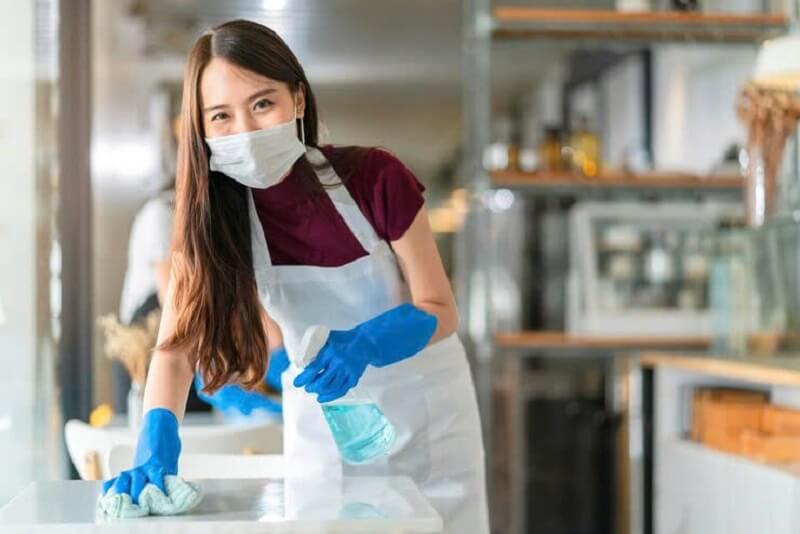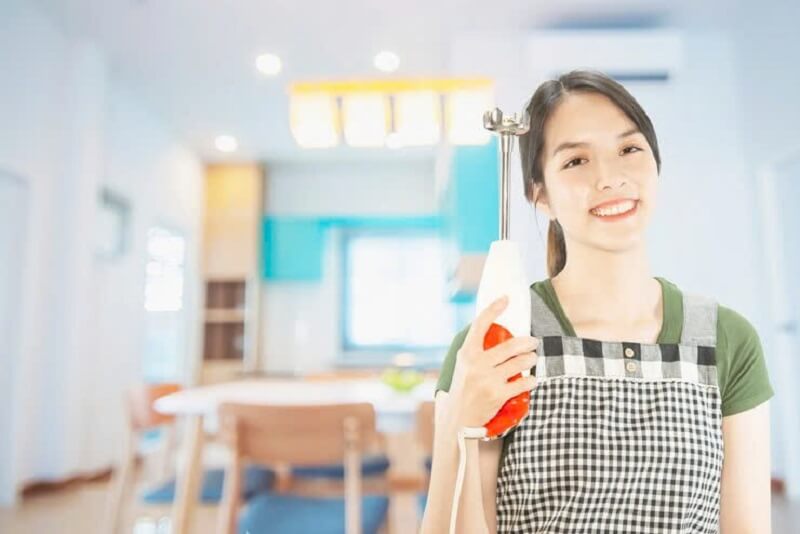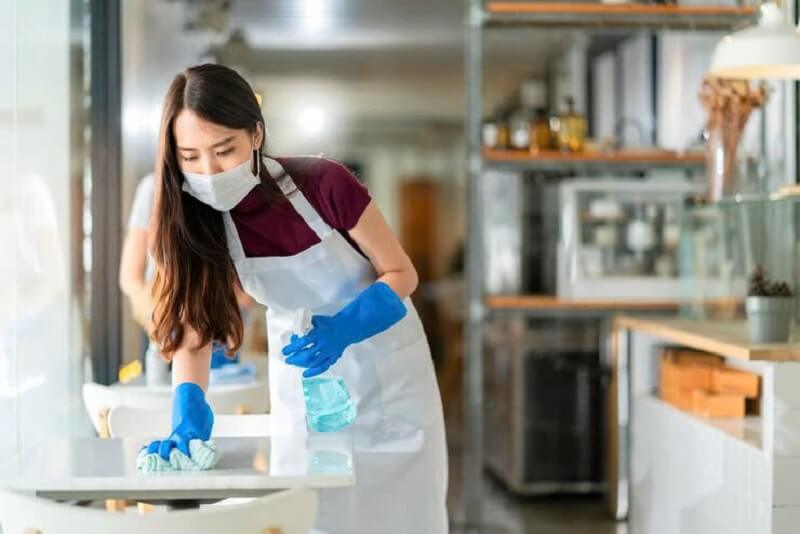Job Description Housekeeping: Key Roles & Responsibilities
A housekeeping role is essential for maintaining cleanliness and order in hotels and other facilities. Understand the tasks, skills, and expectations associated with this job.
1. Introduction to the Housekeeping Profession
Housekeeping plays a vital role in the hospitality industry, ensuring the cleanliness, comfort, and safety of guests. A housekeeper’s job description encompasses a wide range of tasks that directly impact guest satisfaction and the overall reputation of a hotel or resort. Housekeepers are responsible for cleaning rooms, managing supplies, and maintaining high cleanliness standards across public and private areas. The quality of their work directly influences a guest’s experience, making housekeeping an essential service in hospitality.

1.1. Importance of Housekeeping in Hospitality
Housekeeping is crucial to a hotel’s success because cleanliness is one of the top factors influencing guest satisfaction. A clean, well-maintained room creates a positive first impression and sets the tone for a guest's stay. On the other hand, a dirty or poorly maintained environment can result in negative reviews and complaints. Housekeepers also help ensure the health and safety of guests by following hygiene protocols, especially when dealing with high-touch surfaces and sanitation in the wake of the pandemic.
1.2. Housekeeping as a Career Path
Housekeeping is not just about cleaning; it offers numerous opportunities for career growth. Many individuals begin as room attendants or housekeeping assistants and have the chance to move up to supervisory or managerial roles. With experience and training, a housekeeping professional can pursue higher positions such as housekeeping supervisor or manager. As the industry grows, many may even transition into different areas of hotel management. For example, candidates with the right skills may explore opportunities in roles like a job description of a project manager or an executive assistant. These roles require additional responsibilities beyond housekeeping, allowing professionals to diversify their career path and gain more leadership experience. Furthermore, the skills developed in housekeeping, such as attention to detail and time management, can serve as a strong foundation for a successful career across various sectors within hospitality.
1.3. Challenges in the Housekeeping Profession
Despite its rewarding nature, housekeeping can be physically demanding. Housekeepers often work long hours, cleaning multiple rooms in a shift, and may face challenges such as demanding guests or tight deadlines. Additionally, housekeeping professionals may be required to attend a job interview for promotional roles or during recruitment processes for new positions. These interviews often focus on assessing technical skills, personality traits, and experience that are critical for roles such as housekeeping supervisor or manager. The challenge comes in balancing the demands of the physical workload with the preparation required to perform well in these interviews. For those looking to advance in their careers, it’s essential to be well-prepared for the interview process, highlighting the relevant skills acquired through years of hands-on experience.
2. Key Responsibilities of a Housekeeper
The job description housekeeping involves a broad range of tasks that are essential to the day-to-day operations of hospitality establishments. In this section, we will delve deeper into the core responsibilities of housekeepers and explore how they impact the overall guest experience.
2.1. Cleaning and Maintaining Rooms
One of the primary duties of housekeepers is cleaning guest rooms. This involves changing linens, vacuuming, dusting, cleaning bathrooms, and replenishing amenities. The goal is to ensure that each room is spotless and ready for the next guest, which requires efficiency and attention to detail. In addition, housekeepers must follow the cleanliness protocols set by the hotel or establishment to maintain consistency in their work.

2.2. Managing Inventory and Supplies
Another important responsibility of housekeepers is managing inventory and supplies, including linens, cleaning products, and toiletries. Housekeepers must keep track of stock levels to ensure that all necessary items are available when needed. They must also report any shortages or damaged items to their supervisors so that replacements can be arranged. Effective inventory management not only ensures that rooms are properly stocked for guests but also helps to control costs and maintain budget efficiency. This responsibility requires good organizational skills and the ability to manage resources effectively.
3. Skills and Qualities Required for a Housekeeper
To excel in this role, a housekeeper must possess a combination of technical skills and personal qualities. In this section, we will discuss the essential skills that are crucial for housekeepers to perform their job effectively.
3.1. Attention to Detail
Housekeepers need to pay close attention to detail to ensure that no corner of the room is left uncleaned or untidy. This skill is particularly important when cleaning high-touch areas like switches, doorknobs, and furniture. The goal is to ensure that everything in the room meets the hotel's cleanliness standards and that guests experience a spotless environment when they check in.

3.2. Time Management and Efficiency
Housekeepers must be able to manage their time effectively to complete all tasks within a set period. This is crucial, especially in a hotel setting, where many rooms need to be cleaned and prepared for incoming guests. Good time management allows housekeepers to balance multiple responsibilities, such as cleaning rooms, restocking supplies, and performing inspections, without feeling overwhelmed.
In addition to time management, efficiency is key. Housekeepers are often tasked with cleaning several rooms in one shift, so they must learn how to work quickly without sacrificing quality. They often use specialized cleaning equipment and products to maximize efficiency. Learning the most effective techniques for various tasks, like bed making, vacuuming, and bathroom cleaning, can help housekeepers get the job done faster and with better results.
4. Housekeeping Safety and Protocols
Safety is a critical aspect of the housekeeping profession. Housekeepers are often exposed to various cleaning chemicals, heavy equipment, and tasks that can be physically demanding. Understanding and following safety protocols is essential to prevent accidents and ensure a safe working environment for both the housekeepers and guests.
4.1. Proper Handling of Cleaning Chemicals

Housekeepers must be trained in the proper use and handling of cleaning chemicals. These chemicals can be harmful if not used correctly, so safety protocols are essential. For example, housekeepers should always read and follow the instructions on cleaning products, wear protective gloves, and ensure proper ventilation when using strong chemicals like bleach. Additionally, they must be aware of the safety data sheets (SDS) for each product they use to understand the risks involved and the steps to take in case of accidental exposure.
4.2. Safe Lifting and Moving Techniques
Many housekeeping tasks involve lifting and moving heavy objects, such as mattresses, furniture, and cleaning equipment. Housekeepers need to follow proper lifting techniques to avoid injuries, especially to the back. This includes using the legs for lifting, keeping the back straight, and avoiding twisting motions. Training in safe lifting practices can significantly reduce the risk of injury and help maintain the well-being of the staff.
5. Housekeeping Equipment and Tools
The right equipment is essential for housekeepers to perform their tasks efficiently and effectively. In this section, we will look at the various tools and equipment that housekeepers use in their daily tasks.
5.1. Cleaning Tools and Supplies
Housekeepers rely on a range of cleaning tools and supplies to complete their work. These include vacuum cleaners, mops, brooms, cleaning cloths, and brushes, as well as specialized products like glass cleaners, floor wax, and disinfectants. Having the right tools for the job can make a significant difference in the quality and speed of cleaning. For instance, high-quality vacuums can make carpet cleaning more effective, while efficient mops can help speed up floor maintenance.

5.2. Technology in Housekeeping
As technology continues to advance, housekeeping is also benefiting from new innovations. For example, automated cleaning systems and smart devices are being introduced to help with room inspections, inventory management, and guest requests. Some hotels use automated systems to track cleaning status, which helps ensure rooms are cleaned in a timely manner. Additionally, housekeeping management software allows supervisors to assign tasks and monitor performance more efficiently, streamlining operations and improving productivity.
6. Customer Service and Communication Skills
While housekeeping is primarily focused on cleanliness and organization, housekeepers also play an important role in customer service. Housekeepers often interact with guests, whether it's during room cleaning, providing extra towels, or addressing specific requests. Strong communication and customer service skills are necessary for building positive relationships with guests and ensuring their satisfaction.
6.1. Effective Communication with Guests
Housekeepers need to communicate effectively with guests, especially if there are special requests or issues with their rooms. This involves listening to guests’ needs, explaining what actions are being taken, and ensuring any concerns are addressed promptly. For instance, if a guest requests additional pillows, a housekeeper should communicate clearly about when and how they will fulfill the request.
6.2. Teamwork and Collaboration
Housekeeping staff often work in teams, especially in large hotels or resorts. Effective teamwork and collaboration are essential to ensuring that all areas of the hotel are cleaned and maintained efficiently. Housekeepers must coordinate with supervisors, maintenance staff, and front desk staff to ensure smooth operations. Strong teamwork also contributes to a positive work environment and helps resolve issues quickly, ensuring that guests have a seamless experience.
Conclusion: The Role of Housekeeping in Hospitality
The job description housekeeping goes far beyond cleaning. It is a role that requires attention to detail, strong communication skills, safety awareness, and the ability to manage time and resources efficiently. As the hospitality industry continues to evolve, the role of housekeepers remains essential to maintaining high standards and ensuring that guests have a comfortable and enjoyable stay.
By understanding the core responsibilities, skills, and tools necessary for success, housekeepers can thrive in this rewarding profession. Furthermore, with a focus on safety, efficiency, and excellent customer service, housekeeping professionals will continue to contribute significantly to the success of hotels and resorts worldwild.
- Essential Job Description Supervisor Guide for Success
- Essential Job Description Sales Guide for Success
- Job Description Restaurant Manager – Roles & Skills
- Understanding the job description project coordinator role
- Job Description HR Assistant—Roles and Responsibilities
- Essential Guide to Job Description COO
- Comprehensive Job Description Admin Assistant Insights
- A Comprehensive and In-Depth Job Description for HR Generalist
- Comprehensive Guide: Job Description Executive Chef
- Top 5 Best Job Search Sites for Easy Job Applications
- QA Job Description: Key Skills and Roles in 2025
- The Complete Clerk Job Description Guide
- What Is Your Greatest Weakness? Mastering the Answer
- Master the Phone Interview for Career Success
- Crafting the Perfect CV Personal Statement
- What is a Job Description Warehouse Worker?
- Detailed job description teller bank for career growth
- Comprehensive Job Description Store Manager Guide
- Comprehensive Guide to Job Description Personal Assistant
- Comprehensive Guide to Job Description Nursing Assistant
- Comprehensive Job Description Graphic Designer Guide
- Comprehensive Job Description Chief of Staff Guide
- Comprehensive Job Description Cleaner Guide
- Comprehensive Job Description Assistant Manager
- Comprehensive Guide to Job Description Account Executive
- Comprehensive Guide to Secretary Job Description
- Comprehensive Job Description of Teaching Assistant
- Comprehensive Job Description for a Social Media Manager
- Mastering STAR Interview Techniques: The Ultimate Guide
- “I Hate My Job” – What You Should Do Next
- What Is a Job Description Team Leader?
- A Complete Guide to Job Description Sales Assistant
- Comprehensive Job Description for Security Guards
- Detailed Job Description for HR Manager
- The Ultimate Guide to Job Description Medical Assistant
- Job Description Housekeeping: Key Roles & Responsibilities
- Job Description Merchandiser: Key Roles & Skills
- Job Description Product Manager: Roles and Responsibilities
- Job Description Account Manager: Roles and Responsibilities
- Job Description Marketing Manager: Roles & Skills
- Job Description HR: The Essential Guide for HR Professionals
- Best Jobs for Introverts: Top Careers for Quiet Thinkers
- What is Your Greatest Strength? How to Answer Effectively
- Job Description Data Entry Guide
- Detailed Job Description Sales Manager Guide
- The Importance of Work Experience on a Resume
- Comprehensive Job Description Sales Representative Insights
- Comprehensive Job Description of Project Manager
- Job Description Executive Assistant: Key Responsibilities
- Job Description for Sales Executive: Key Roles and Skills
- Job Description Customer Service Roles
- Job Description Business Analyst: Roles and Skills
- Comprehensive Job Description for a Receptionist
- Mastering the Sales Associate Job Description
- Understanding Accountant Job Description in Detail
- Hard Skills vs Soft Skills: Key Differences and Examples
- Why Do You Want to Work Here? Best Answer and Examples
- How to Decline a Job Offer Politely and Gracefully
- Comprehensive Job Description of Waitress
- Job Description Cashier: Key Responsibilities and Skills
- Where Do You See Yourself in 5 Years?
- Mastering Problem Solving Skills for Career Success
- Effective Job Description Sample Guide
- Behavioral Interview Questions Guide
- Comprehensive Job Description for an Administrative Assistant
- Essential Job Titles for Career Success
- Master Leadership Skills for Effective Management
- How to Write a Perfect Motivational Letter
- CV vs Resume: Understanding the Key Differences
- Top Reasons for Leaving a Job Today
- What Is a Resignation Letter? Key Details You Must Know
- How to Write a Perfect Job Application
